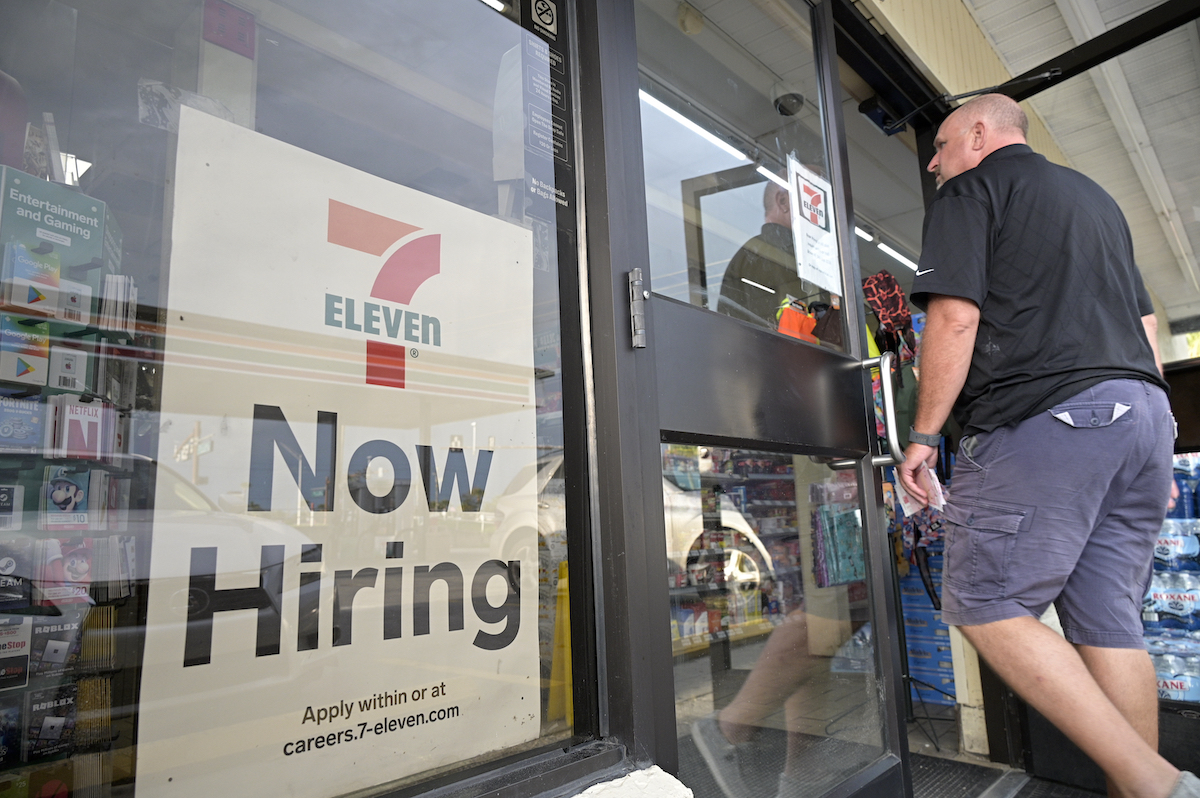The United States is facing a labor shortage of epic proportions. With over 10 million jobs currently available and almost 9 million available workers waiting on the sidelines, “the U.S. now has more job openings than any time in history,” according to NBC News.
The Biden administration surely bears some of the blame, having worked persistently to overextend federal unemployment benefits and distort return-to-work incentives well past the darkest days of the pandemic. And while the Federal Pandemic Unemployment Compensation (FPUC) program has just recently expired, plenty of other counterproductive policies remain firmly in place.
Yet the roots of the crisis run far deeper, and any “return to normalcy” won’t hinge on swift, simplistic hand gestures bythe state. Thus, even as we resist the political games of the day, we’d be wise to also consider the labor challenges that preceded the pandemic in their arc and emphasis.
For decades, Americans have tended to over-elevate certain jobs and careers above others, prompting a general resistance to “the trades” or “work with the hands” and a glorification of desk jobs, startups, and the various comforts of “creative spaces.” Reinforced by constant cultural calls to “follow your passion” and pursue four-year college degrees, students and workers have long been prodded to focus on a narrowing set of job prospects in sectors like technology, finance, marketing, and activism. Well before the pandemic, these pressures were already leading to an ever-widening skills gap in the trades and service sectors. And at a deeper level, they have served to dim our cultural imaginations when it comes to how we think about the value and dignity of work itself.
In a segment for PBS News Hour, Paul Solman explores the trend in light of the more recent COVID ripple effects, wondering if the stigmas we’ve imposed on certain forms of work are making the post-pandemic recovery all the more difficult.
Solman interviews Mike Rowe, former host of Discovery Channel’s Dirty Jobs and founder of the mikeroweWORKS Foundation. For Rowe, the promotion of four-year college degrees has done the most to make alternative career paths unattractive to rising generations.
“The push for one form of education … really was the beginning of a long list of stigmas, stereotypes, myths, and misperceptions that to this day dissuade millions of kids from pursuing a legitimate opportunity to make six figures in the trades,” says Rowe. “… In the eyes of many parents and in the eyes of many counselors, the trade school is the thing you did if you weren’t cut out for university.”
More and more we have presented young people with vocational blueprints and cookie-cutter college tracks that ignore the complexity of the human person and the diversity of human needs.
To demonstrate the shift, Solman interviews a high school class in Louisiana, asking whether any of the students would “seriously consider a career in one of the trades.” Only one student raises his hand.
“It’s like, ‘Go to college! Go to college!’” the student says. “There’s barely anybody saying, ‘Go to trade school!’ That’s not an option that’s often presented to us—like, ‘This is not for you.’”
It’s a peculiar trend, particularly because the demand is so pressing and the pay can be rather competitive. Contrary to popular perception, tradespeople often have a shorter path to more stable income, all without the burden of onerous college debt. “In fact,” Solman says, “college grads earn 74% more than those with only a high school diploma, but not that much more than skilled tradespeople—median income of $54,000 a year for a bachelor’s degree vs. $51,000 for electricians, $46,000 for plumbers.”
There’s also a common prejudice that work in the trades somehow lacks meaning or purpose, yet Solmon interviews several plumbers and electricians who explain how they are routinely hailed as “heroes” by their customers. “I can’t tell you the amount of pride from people in our industry, how we felt that we needed to keep the country going,” says Tonya Hicks, an electrician. “And we have the jobs of the future for sustainability and energy and water conservation.”
Indeed, if there’s one silver lining from the COVID crisis, it’s the potential for a renewed appreciation for so-called essential work. The question is how well that recognition will actually stick in the culture at large—whether our momentary gratitude will translate into a transformation of our perspectives about which jobs and vocations are worthy of our energy, investment, and admiration.
Yes, during COVID many in the trades were on the “front lines,” but they always were—creating, working, and serving within miraculous supply chains that bring us milk, masks, medicine, and toilet paper. Yes, these workers contributed to untold social and economic flourishing, but they always have.
Why did it take a pandemic to highlight that such work brings profound meaning to life?
“When things get back to normal, this country is going to enter a new age of work,” Rowe concludes, “… a new age of making things and fixing things and building things, an age where skilled workers are going to be in demand like never before.”
In facing the current labor crisis, we ought to recognize the value and dignity of all work, regardless of the economic or public health challenges of the day, and before and beyond our personal lists of economic priorities and vocational preferences.
Hopefully, the problems of the pandemic will yield a greater understanding and appreciation for the interconnectedness of the modern economy, allowing us to embrace and celebrate all kinds of work—to appreciate its essentialness, meaningfulness, and complexity.
